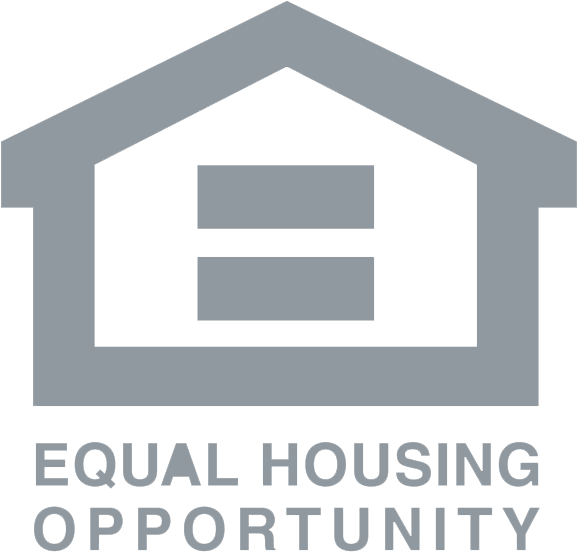
REVERSE MORTGAGE
A reverse mortgage is a specialized loan designed for homeowners aged 62 or older, allowing them to tap into their home’s equity without the need for monthly mortgage payments. Instead of making payments to the lender, the lender provides payments to the homeowner. This loan can be used for various financial needs, including debt repayment, improving cash flow, or establishing a line of credit. Reverse mortgages are a valuable financial tool for seniors who wish to maintain their quality of life and stay in their homes without the burden of monthly mortgage payments.
Originally intended to help older homeowners cover daily living expenses, reverse mortgages now offer versatile financial solutions, including:
- Paying off an existing mortgage
- Funding home repairs or renovations
- Consolidating or paying off debts
- Covering medical bills or in-home healthcare
- Assisting with property taxes and insurance
- Estate planning to leave money to heirs
- Extending retirement assets
- Purchasing a new home
Reverse mortgages provide flexibility and financial options for homeowners seeking additional financial security, helping them enjoy retirement with peace of mind.
To qualify for a reverse mortgage, you must meet the following criteria:
- Age Requirement: You must be at least 62 years old. If you have a younger spouse, special considerations may apply.
- Primary Residence Ownership: Eligible properties include single-family homes, approved condominiums, townhouses, manufactured homes, and up to four-unit properties. Specific qualification rules apply to mobile homes and condominiums.
- Home Equity: While there’s no set percentage, most homeowners need at least 50% equity in their home. The amount you can borrow depends on your age and current interest rates.
Eligibility requirements may vary based on the type of reverse mortgage. It’s important to consult with a Top7 Mortgage reverse mortgage specialist to assess your situation and determine if you qualify.
At Top7 Mortgage, we guide you through each step of the reverse mortgage process to ensure clarity and confidence. Here’s how the process works:
- Prequalification: After addressing your questions, we’ll review your credit report to assess your creditworthiness, income, and property charge payment history to determine loan eligibility.
- HUD-Approved Counseling: Counseling is mandatory for all reverse mortgages. You can complete this via phone or in person through a local or national HUD-approved agency. This unbiased review ensures you fully understand the program.
- Loan Application: We will assist in preparing your loan application. You can sign it electronically or on paper. Once submitted, we’ll start processing your loan.
- Processing: This step includes ordering services like appraisals, title work, and flood certification. You will schedule an appraisal and make payments directly to the appraisal management company. After the appraisal, we will update your loan terms accordingly.
- Underwriting: An underwriter will evaluate your loan application to ensure it aligns with the lender’s guidelines, addressing any potential risks before moving to closing.
- Closing: Closing will be arranged at a convenient time and location, such as your home or the title company’s office. You will need identification and a voided check for funds via bank wire. Depending on your state, either an attorney or a notary will oversee the closing.
- Funding: After closing, your funds will be wired to you by the title company on the fourth business day. The three-day rescission period, excluding Sundays and holidays, allows you time to review the documents you signed. Once this period ends, the transaction is finalized.
At Top7 Mortgage, we’re here to help you explore your options and provide guidance every step of the way. Contact us to learn more about how a reverse mortgage can work for you and to see if it’s the right fit for your financial needs.
Joining Over 800,000 Students Enjoying Avada Education now
Become Part of Avada University to Further Your Career.

REVERSE MORTGAGE
A reverse mortgage is a specialized loan designed for homeowners aged 62 or older, allowing them to tap into their home’s equity without the need for monthly mortgage payments. Instead of making payments to the lender, the lender provides payments to the homeowner. This loan can be used for various financial needs, including debt repayment, improving cash flow, or establishing a line of credit. Reverse mortgages are a valuable financial tool for seniors who wish to maintain their quality of life and stay in their homes without the burden of monthly mortgage payments.
Originally intended to help older homeowners cover daily living expenses, reverse mortgages now offer versatile financial solutions, including:
- Paying off an existing mortgage
- Funding home repairs or renovations
- Consolidating or paying off debts
- Covering medical bills or in-home healthcare
- Assisting with property taxes and insurance
- Estate planning to leave money to heirs
- Extending retirement assets
- Purchasing a new home
Reverse mortgages provide flexibility and financial options for homeowners seeking additional financial security, helping them enjoy retirement with peace of mind.
To qualify for a reverse mortgage, you must meet the following criteria:
- Age Requirement: You must be at least 62 years old. If you have a younger spouse, special considerations may apply.
- Primary Residence Ownership: Eligible properties include single-family homes, approved condominiums, townhouses, manufactured homes, and up to four-unit properties. Specific qualification rules apply to mobile homes and condominiums.
- Home Equity: While there’s no set percentage, most homeowners need at least 50% equity in their home. The amount you can borrow depends on your age and current interest rates.
Eligibility requirements may vary based on the type of reverse mortgage. It’s important to consult with a Top7 Mortgage reverse mortgage specialist to assess your situation and determine if you qualify.
At Top7 Mortgage, we guide you through each step of the reverse mortgage process to ensure clarity and confidence. Here’s how the process works:
- Prequalification: After addressing your questions, we’ll review your credit report to assess your creditworthiness, income, and property charge payment history to determine loan eligibility.
- HUD-Approved Counseling: Counseling is mandatory for all reverse mortgages. You can complete this via phone or in person through a local or national HUD-approved agency. This unbiased review ensures you fully understand the program.
- Loan Application: We will assist in preparing your loan application. You can sign it electronically or on paper. Once submitted, we’ll start processing your loan.
- Processing: This step includes ordering services like appraisals, title work, and flood certification. You will schedule an appraisal and make payments directly to the appraisal management company. After the appraisal, we will update your loan terms accordingly.
- Underwriting: An underwriter will evaluate your loan application to ensure it aligns with the lender’s guidelines, addressing any potential risks before moving to closing.
- Closing: Closing will be arranged at a convenient time and location, such as your home or the title company’s office. You will need identification and a voided check for funds via bank wire. Depending on your state, either an attorney or a notary will oversee the closing.
- Funding: After closing, your funds will be wired to you by the title company on the fourth business day. The three-day rescission period, excluding Sundays and holidays, allows you time to review the documents you signed. Once this period ends, the transaction is finalized.
At Top7 Mortgage, we’re here to help you explore your options and provide guidance every step of the way. Contact us to learn more about how a reverse mortgage can work for you and to see if it’s the right fit for your financial needs.
Joining Over 800,000 Students Enjoying Avada Education now
Become Part of Avada University to Further Your Career.
-
First-Time Homebuyer Guide to MortgagesMarch 15th, 2016
-
The Ultimate Guide to Home Mortgage RefinancingOctober 1st, 2024
-
The Loan ProcessOctober 18th, 2024
-
First-Time Homebuyer Guide to MortgagesMarch 15th, 2016
-
The Ultimate Guide to Home Mortgage RefinancingOctober 1st, 2024
-
The Loan ProcessOctober 18th, 2024
- No comments have been published yet.






